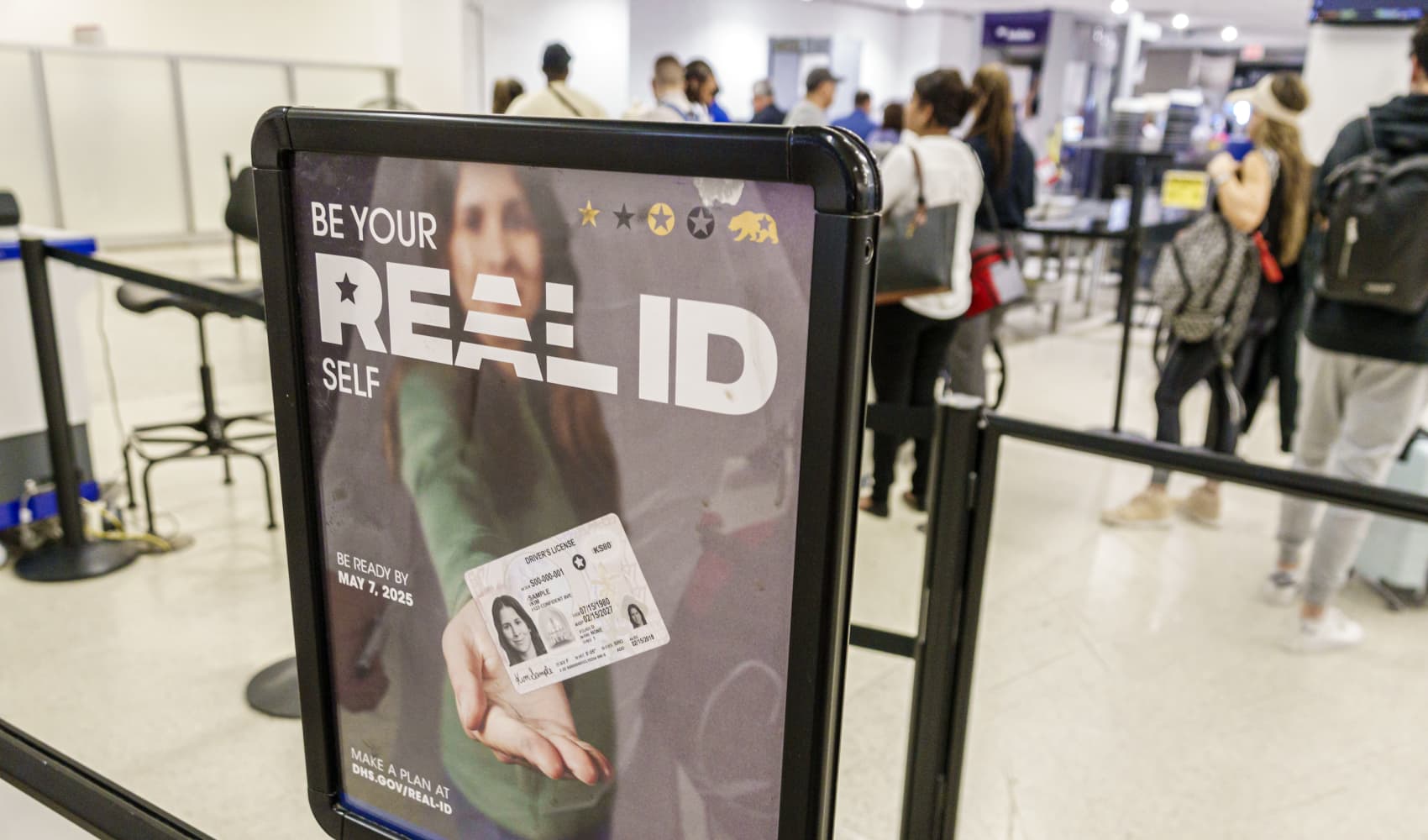Real ID Deadline: Unmasking New Privacy Concerns & Your Rights
Beyond the Real ID Hype: Unmasking the Privacy Concerns
Real ID: More Than Just Airport Security?
The clock is ticking! May 7th is looming, and with it comes the much-anticipated (or dreaded) Real ID enforcement. You know, the one that's been pushed back more times than your New Year's resolutions? Finally, to board a domestic flight or enter certain federal facilities, you'll need a Real ID-compliant driver's license or ID card, or another acceptable form of identification. But beyond the scramble to get that little star on your license, are there deeper implications we should be considering? Is this simply about airport security, or does it raise broader questions about national identity and our personal privacy?
The May 7th Deadline: Are You Ready?
After years of delay, the Real ID deadline is fast approaching. Starting May 7, upgraded driver’s licenses or ID cards — created post-9/11 to boost security standards — or another acceptable form of identification will be required to board domestic flights and enter certain federal facilities. All states, the District of Columbia, and the five U.S. territories are Real ID compliant and issuing Real ID-compliant driver's licenses.
What is Real ID Anyway?
Let's break it down. Real ID isn't a new national ID card. It's a set of minimum security standards for state-issued driver's licenses and ID cards, established by the Real ID Act of 2005. This act came about as a response to the 9/11 terrorist attacks, aiming to create a more secure and reliable form of identification. Think of it as an enhanced driver’s license – a super license, if you will – that meets federal security requirements.
Key Features of a Real ID:
- Enhanced Security: Includes features like tamper-resistant materials and digital images.
- Verification Process: Requires applicants to provide documentation proving their identity, date of birth, and legal U.S. residency.
- Data Sharing: States must share certain data with each other, but the extent of this data sharing is a key privacy concern.
The Government Perspective: Security First?
From the government's perspective, Real ID is all about enhancing national security. By establishing uniform standards and requiring verification of identity documents, it aims to make it harder for terrorists and other criminals to obtain fake IDs and travel undetected. Proponents argue that it's a necessary measure to protect the country from threats.
The Privacy Advocate’s Concerns: Where Does Your Data Go?
Here's where things get interesting. While security is undoubtedly important, many privacy advocates raise legitimate concerns about the potential for Real ID to create a de facto national identification system, and to lead to the mass collection and sharing of personal data. After all, the TSA does not store personal information even if it is scanned, and states have a long history of protecting data, even if they do share some.
Data Collection and Storage:
The Real ID Act requires states to collect more personal information than they did before, including copies of birth certificates, social security cards, and proof of address. Where is all this data stored, and how is it protected from unauthorized access or misuse? Could it be vulnerable to hacking or government overreach?
Data Sharing: A Network of Information?
The Act also mandates that states share certain data with each other, which raises questions about the potential for a national database of personal information. While the government claims that data sharing is limited and secure, critics worry about the slippery slope toward a national identification system, and the potential for that system to be used for purposes beyond security, such as tracking individuals or profiling specific groups.
The Slippery Slope: Is This a National ID in Disguise?
One of the biggest fears surrounding Real ID is that it could pave the way for a national identification system. While the government insists that it's not intended to be a national ID, the reality is that Real ID-compliant cards are becoming increasingly necessary for everyday activities, such as flying and entering federal buildings. Could this gradually lead to a situation where a Real ID card becomes a de facto national ID, required for everything from opening a bank account to getting a job?
State Autonomy vs. Federal Mandates: A Power Struggle?
The Real ID Act has also sparked a debate about the balance of power between the federal government and the states. Some state politicians have resisted the Act, arguing that it infringes on state sovereignty and forces them to comply with federal mandates without providing adequate funding. They see it as another example of the federal government overstepping its authority and dictating policies to the states.
Privacy in the Digital Age: A Constant Battle?
Let's face it: privacy is a hot topic in the digital age. We're constantly bombarded with news about data breaches, hacking scandals, and government surveillance. It's no wonder that people are becoming increasingly concerned about the protection of their personal information. Real ID is just one piece of the puzzle in this ongoing battle for privacy in the digital world.
Understanding the Trade-offs: Security vs. Privacy
Ultimately, the debate over Real ID boils down to a fundamental trade-off between security and privacy. How much privacy are we willing to sacrifice in the name of security? Is it possible to strike a balance between these two competing values? There are no easy answers, but it's crucial to have an open and honest discussion about the implications of Real ID and other security measures on our personal liberties.
Beyond Real ID: The Future of Driver’s Licenses
Real ID is just the beginning. The technology used in driver’s licenses is constantly evolving, with new features like mobile driver’s licenses (mDLs) and digital identities on the horizon. These technologies offer the potential for greater convenience and security, but they also raise new privacy concerns. It’s a good time for citizens in all 50 states to update privacy practices, especially since more big changes to driver’s license technology are on the way.
Mobile Driver's Licenses (mDLs): The Future is Now?
Imagine carrying your driver's license on your smartphone. That's the promise of mDLs. But what about the security risks? Could your phone be hacked? What about tracking? Could a malicious app track you every time you use your mDL? We need robust privacy protections to make sure mDLs are used responsibly.
The Bottom Line: Stay Informed, Stay Vigilant
The Real ID Act and the broader debate over national identity and privacy are complex and multifaceted. It's important to stay informed about the issues, understand the trade-offs, and be vigilant about protecting your personal information. As citizens, we have a responsibility to engage in this debate and demand transparency and accountability from our government and technology companies.
What Can You Do to Protect Your Privacy?
While the big policy decisions are being made at the state and federal level, there are practical steps you can take to protect your own privacy in the Real ID era.
Practical Privacy Tips:
- Be aware of what information you're sharing: When applying for a Real ID, be mindful of the documents you're providing and who has access to them.
- Check your state's privacy policies: Understand how your state handles personal information and what privacy protections are in place.
- Use strong passwords and security settings: Protect your online accounts and devices from unauthorized access.
- Be cautious about sharing personal information online: Think before you post anything on social media or other websites.
- Advocate for privacy-friendly policies: Contact your elected officials and let them know that you care about privacy.
The Ongoing Conversation: Keeping Privacy Alive
The conversation surrounding Real ID and its privacy implications is far from over. It's an ongoing dialogue that requires constant vigilance, critical thinking, and active participation from all of us. By staying informed, engaging in the debate, and advocating for privacy-friendly policies, we can help ensure that our personal liberties are protected in the digital age.
Conclusion: Navigating the Real ID Landscape
The Real ID deadline is rapidly approaching, but the story extends far beyond simply getting a star on your license. It's about balancing security needs with fundamental privacy rights. As we move into an era of increased data collection and sharing, it's crucial to understand the implications of policies like Real ID, mobile driver's licenses, and the evolving digital landscape. Stay informed, stay vigilant, and actively participate in shaping the future of identity and privacy in our nation.
Frequently Asked Questions
Here are some common questions about Real ID and its impact on your privacy:
-
What if I don’t want a Real ID?
You are not required to get a Real ID. You can use another acceptable form of identification, such as a valid U.S. passport, to board domestic flights and enter federal facilities.
-
Does the Real ID Act create a national database of driver's license information?
The Real ID Act requires states to share some data with each other, but it does not create a national database. States maintain their own databases and control access to them.
-
Can my Real ID data be used for tracking or surveillance?
While there are concerns about the potential for Real ID data to be used for tracking or surveillance, there are also legal and technological safeguards in place to protect against abuse. It is important to stay informed and advocate for policies that protect privacy.
-
Are mobile driver's licenses more or less secure than physical Real ID cards?
Both mDLs and physical Real ID cards have their own security advantages and disadvantages. mDLs can offer enhanced security features like biometric authentication, but they are also vulnerable to hacking and malware. Physical cards can be lost or stolen, but they are not susceptible to digital attacks. The security of both types of IDs depends on the specific implementation and the security measures in place.
-
What are the potential benefits of a national identification system?
Proponents of a national identification system argue that it could enhance security, reduce fraud, and simplify identity verification. However, critics raise concerns about privacy, government overreach, and the potential for abuse. The debate over a national ID system is complex and multifaceted, with valid arguments on both sides.

